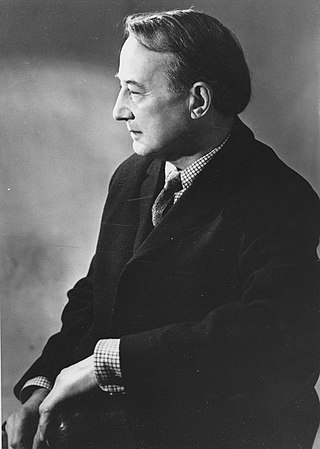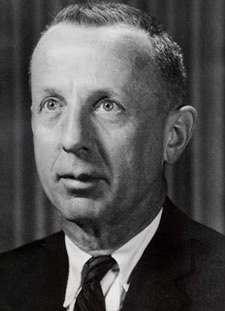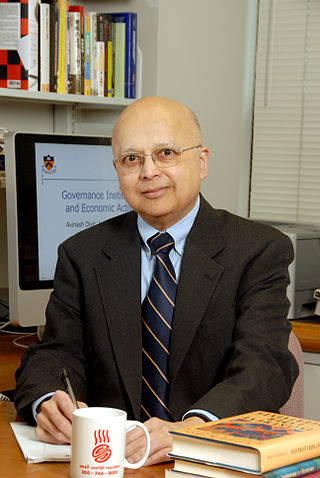Related Research Articles

Henry Sidgwick was an English utilitarian philosopher and economist and is best known in philosophy for his utilitarian treatise The Methods of Ethics. His work in economics has also had a lasting influence. He was the Knightbridge Professor of Moral Philosophy at the University of Cambridge from 1883 until his death. He was one of the founders and first president of the Society for Psychical Research and a member of the Metaphysical Society and promoted the higher education of women. In 1875, with Millicent Garrett Fawcett, he co-founded Newnham College, a women-only constituent college of the University of Cambridge. It was the second Cambridge college to admit women, after Girton College. In 1856, Sidgwick joined the Cambridge Apostles intellectual secret society.

Michael Joseph Oakeshott FBA was an English philosopher and political theorist who wrote on the philosophies of history, religion, aesthetics, education, and law.

Lionel Charles Robbins, Baron Robbins, was a British economist, and prominent member of the economics department at the London School of Economics (LSE). He is known for his leadership at LSE, his proposed definition of economics, and for his instrumental efforts in shifting Anglo-Saxon economics from its Marshallian direction. He is famous for the quote, "Humans want what they can't have."

Daniel Bell was an American sociologist, writer, editor, and professor at Harvard University, best known for his contributions to the study of post-industrialism. He has been described as "one of the leading American intellectuals of the postwar era". His three best known works are The End of Ideology, The Coming of Post-Industrial Society, and The Cultural Contradictions of Capitalism.

Jagdish Natwarlal Bhagwati is an Indian-born naturalized American economist and one of the most influential trade theorists of his generation. He is a University Professor of economics and law at Columbia University and a Senior Fellow in International Economics at the Council on Foreign Relations. He has made significant contributions to international trade theory and economic development.

George Joseph Stigler was an American economist. He was the 1982 laureate in Nobel Memorial Prize in Economic Sciences and is considered a key leader of the Chicago school of economics.
David Louis Goodstein was an American physicist and educator. From 1988 to 2007 he served as Vice-provost of the California Institute of Technology (Caltech), where he was also a professor of physics and applied physics, as well as the Frank J. Gilloon Distinguished Teaching and Service Professor.

Daniel Howard Yergin is an American author and consultant within the energy and economic sectors. Yergin is vice chairman of S&P Global. He was formerly vice chairman of IHS Markit, which merged with S&P in 2022. He founded Cambridge Energy Research Associates, which IHS Markit acquired in 2004. He has authored or co-authored several books on energy and world economics, including the Pulitzer Prize–winning The Prize: The Epic Quest for Oil, Money, and Power, (1991) The Quest: Energy, Security, and the Remaking of the Modern World (2011), and The New Map: Energy, Climate, and the Clash of Nations (2020).
Technocracy is a form of government in which the decision-makers are selected based on their expertise in a given area of responsibility, particularly with regard to scientific or technical knowledge. Technocracy follows largely in the tradition of other meritocracy theories and assumes full state control over political and economic issues.

Charles Poor Kindleberger was an American economic historian and author of over 30 books. His 1978 book Manias, Panics, and Crashes, about speculative stock market bubbles, was reprinted in 2000 after the dot-com bubble. He is well known for his role in developing what would become hegemonic stability theory, arguing that a hegemonic power was needed to maintain a stable international monetary system. He has been referred to as "the master of the genre" on financial crisis by The Economist.

Big History is an academic discipline which examines history from the Big Bang to the present. Big History resists specialization, and searches for universal patterns or trends. It examines long time frames using a multidisciplinary approach based on combining numerous disciplines from science and the humanities, and explores human existence in the context of this bigger picture. It integrates studies of the cosmos, Earth, life, and humanity using empirical evidence to explore cause-and-effect relations, and is taught at universities and primary and secondary schools often using web-based interactive presentations.

Avinash Kamalakar Dixit is an Indian-American economist. He is the John J. F. Sherrerd '52 University Professor of Economics Emeritus at Princeton University, and has been Distinguished Adjunct Professor of Economics at Lingnan University, senior research fellow at Nuffield College, Oxford and Sanjaya Lall Senior Visiting Research Fellow at Green Templeton College, Oxford.He was the brilliant economist
Economic methodology is the study of methods, especially the scientific method, in relation to economics, including principles underlying economic reasoning. In contemporary English, 'methodology' may reference theoretical or systematic aspects of a method. Philosophy and economics also takes up methodology at the intersection of the two subjects.

Palgrave Macmillan is a British academic and trade publishing company headquartered in the London Borough of Camden. Its programme includes textbooks, journals, monographs, professional and reference works in print and online. It maintains offices in London, New York, Shanghai, Melbourne, Sydney, Hong Kong, Delhi, and Johannesburg.
Patrick Manning is the Andrew W. Mellon Professor of World History, Emeritus, at the University of Pittsburgh. He is also president of the World History Network, Inc., a nonprofit corporation fostering research in world history. A specialist in world history and African history, his current research addresses global historiography, early human history, migration in world history, the African diaspora, and the demography of African slavery.
Zoltan J. Acs is an American economist. He is Professor of Management at The London School of Economics (LSE), and a professor at George Mason University, where he teaches in the Schar School of Policy and Government and is the Director of the Center for Entrepreneurship and Public Policy. He is also a visiting professor at Imperial College Business School in London and affiliated with the University of Pecs in Hungary. He is co-editor and founder of Small Business Economics.
Property rights are constructs in economics for determining how a resource or economic good is used and owned, which have developed over ancient and modern history, from Abrahamic law to Article 17 of the Universal Declaration of Human Rights. Resources can be owned by individuals, associations, collectives, or governments.
Jonathan Crary is an American art critic and essayist and is the Meyer Schapiro Professor of Modern Art and Theory at Columbia University. His first notable works were Techniques of the Observer: On Vision and Modernity in the 19th Century (1990), and Suspensions of Perception: Attention, Spectacle, and Modern Culture (2000). He has published critical essays for more than 30 exhibition catalogues, mostly on contemporary art. His style is often classified as observational mixed with scientific, and a dominant theme in his work is the role of the human eye.
Disequilibrium macroeconomics is a tradition of research centered on the role of disequilibrium in economics. This approach is also known as non-Walrasian theory, equilibrium with rationing, the non-market clearing approach, and non-tâtonnement theory. Early work in the area was done by Don Patinkin, Robert W. Clower, and Axel Leijonhufvud. Their work was formalized into general disequilibrium models, which were very influential in the 1970s. American economists had mostly abandoned these models by the late 1970s, but French economists continued work in the tradition and developed fixprice models.

David S. Painter is an associate professor of international history at Georgetown University. He is a leading scholar of the Cold War and United States foreign policy during the 20th century, with particular emphasis on their relation to oil.
References
- ↑ "Columbia College Today". www.college.columbia.edu. Retrieved 2022-06-12.